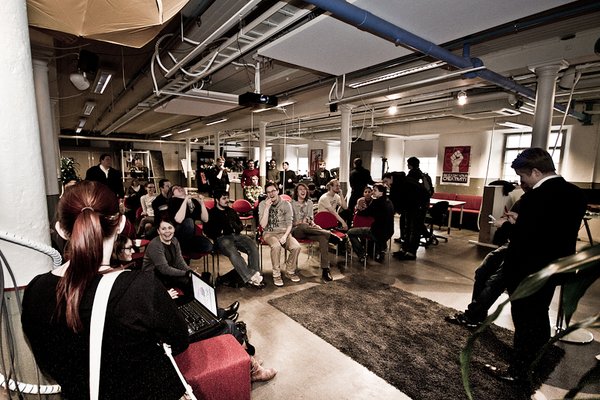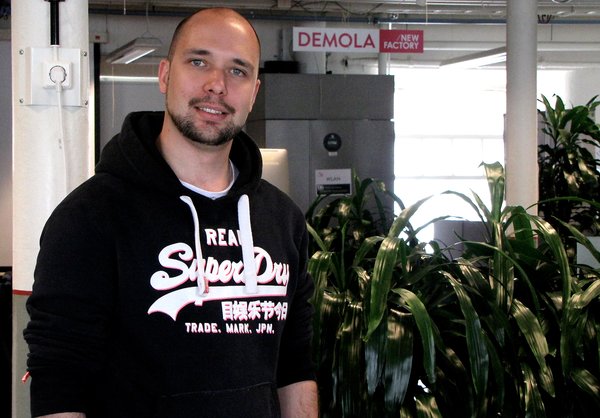Cornerstone of the smart city? Smart citizens!
3.7.2015The Smart City Accelerator is a programme where cities, companies and students co-create new smart city innovations. Its pilot was so successful that a significantly bigger and more international programme is now being prepared for spring 2016.
If you ask Campaign Manager Janne Eskola, the most inspiring thing about the Smart City Accelerator pilot has been the spreading of the open-minded Demola approach to different stakeholders. Developed in Tampere, Demola is an innovation platform where student teams seek solutions to the challenges of companies and organisations.
“Students are not tied down by what has always been done before or with whom. It has also had an effect on the people of the participating cities and companies; they started throwing around some crazy ideas and found brand new perspectives that way,” says Janne.
Three cities participated in the pilot: Tampere, Malmö and Lund; 13 projects, approximately 60 students and 12 partners. The initial idea was that all smart cities have a vision of the direction in which the city should be developed. However, they may not have the resources to develop practical solutions. Companies, on the other hand, have ideas that could be useful to the cities but often lack effective channels for offering said ideas.
“Students can function as a neutral party between the companies and cities, developing the idea based on the cities’ needs and the companies’ ideas,” says Janne.
At the same time, the students also work for themselves because the results of each project are owned by the student team in accordance with the Demola model. And if those results are usable and viable for the company, it has the opportunity to licence the rights.
“Another important aspect is bringing together companies and cities. Even if the project’s result is not the hoped-for core product, the dialogue has still started and a joint development target may be found that way.”
The Smart City Accelerator pilot developed attractions for a shopping centre, mobile gaming that uses NFC technology and the Tampere Ambassador network, for example. The results of the pilot are presented in more detail in the Demola online publication.

All in all, the pilot clearly demonstrated to its creators that getting city employees involved is vital in developing a smart city. The vision designers draw outlines, but ideas only advance when the users of the smart solutions are also involved in the development work. The student teams were found to be a great link for this.
“Students can approach city workers more easily than company representatives can, and ask practical questions, such as ‘Would you use this?’, ‘Would that work?’ and ‘Would this be useful?’”
Spring 2016 will see a new Smart City Accelerator that is bigger and more international than the pilot. The participants will include several cities around the world, with around 10 projects each. This also means that it will involve hundreds of students. The wider basis also facilitates co-operation between smart cities.
“With the projects, discussion between cities could start on a practical level: what is being done there, what we are doing, shared interests... And the whole time, concrete smart city services and products are also being created,” says Janne.
It also brings cultural changes to companies and cities. Trialling does not always mean developing a huge project around an idea, investing millions in it and waiting tensely to see what happens.
“The Demola model makes it possible to conduct trials quickly, and if the result is golden, the company can invest in it. Admittedly, the model is also such that a one-time trial may not be very useful; regular and continuous co-operation is needed to allow the Demola methods that best suit each company to take shape.”
Cities are excellent development platforms because they handle a lot of services connected to people’s everyday lives. Whether it is transport, energy, health care or education, the city organisation contains relevant knowledge, competence and development ideas. In a smart city, this capital is utilised as thoroughly as possible.
“For me, one of the cornerstones of a smart city is smart citizens; people who want to improve their city and, consequently, their own quality of life. The things that we develop here are used to support and empower people and give them the freedom to accomplish things,” says Janne.

Translation: Lingoneer
Read the article in Finnish: tampereenseudunvetovoima.fi/artikkelit/alykaupungin-kulmakivi-alykkaat-kaupunkilaiset